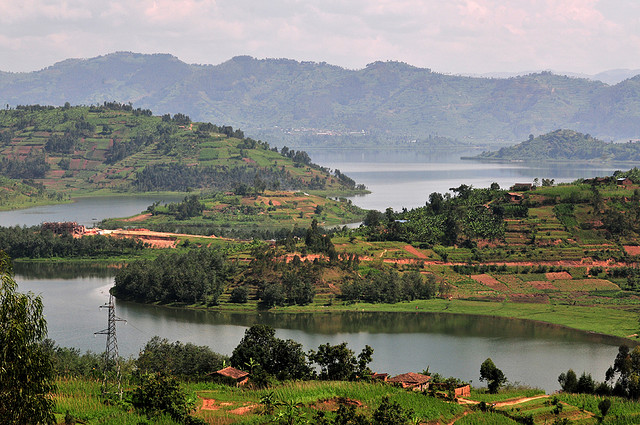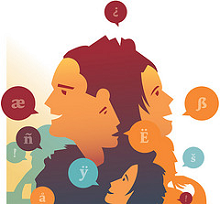Tertiary education in Rwanda to go the open way
Marieke Guy - October 5, 2014 in developing-world, featured, languages, oer
 Advisory Board member Bernard Nkuyubwatsi is following up his previous posts on A Multidimensional Migration for Social Inclusion: A Personal Account and Open Education Rwanda with some exciting news about the open education situation in Rwanda.
Advisory Board member Bernard Nkuyubwatsi is following up his previous posts on A Multidimensional Migration for Social Inclusion: A Personal Account and Open Education Rwanda with some exciting news about the open education situation in Rwanda.
****
The Higher Education Council (HEC), a semi-autonomous institution in the Ministry of Education in Rwanda, has already expressed willingness to move towards an open and inclusive tertiary education in a call for consultation published in The New Times on 11 September 2014. The intention is to adopt Open, Distance and eLearning (ODeL) at the rate of 50 percent in conventional tertiary education, provide an opportunity to potential students who have not been included in the conventional higher education due to family and professional commitment as well as finding an alternative cost-effective academic pathway for students who may not afford expensive conventional academic programmes.
The HEC intends to support the development of a national ODeL policy and strategy which will underpin related practices. In a live Twitter session (#AskTheMinister) hosted on 30 September 2014, Professor Silas Lwakabamba; Rwanda’s Minister of Education, invited any contribution that may open up tertiary education via ODeL. If exploited at the fullest potential, this political investment and participatory approach may position Rwanda among global leaders in open and inclusive tertiary education. Rwanda may also lead in opening education with limited resources.

General view of northwestern Rwanda by Neil Palmer (CIAT), Flickr, CC-BY
Many Rwandan learners have already been successful in self-determined learning (also referred to as heutagogical investment) when the national examinations administered at the end of secondary education were made open to anyone, and the results in the national exams were established as a benchmark for student loan from Student Financing Agency for Rwanda (the current Department of Higher Education Loan at Rwanda Education Board) for public higher education. Many learners who had not been previously included in higher education learned on their own, enrolled in the national exams as non-formal learners in a quest for student loan. These learners’ heutagogical practices were fostered by the value created by the change in student loan provision and the assurance that if they do very well in the national exams, student loan was guaranteed.
This student loan is very limited and has been available to only less than 5 percent top performers. Consequently some of the non-formal learners had to re-take national exams up to three times to secure student loan. Such dedication and perseverance is already a great asset that should not be wasted. Some of the learners who won student loan through this pathway have already completed post-graduate degrees and their income multiplied threefold or more. This transformation was enabled by open assessment and if the content and the national curricula were similarly open and easily available to the learners, more accomplishment would have accrued. Unfortunately, funds available for student loan for tertiary education have recently been shrinking due to financial constraints.
There is need for innovation in collaborative quality enhancement based on shared benefit to enable different stakeholders’ contribution of a diversity of resources rather than building quality education around only financial resources that lack in Rwanda. An overemphasis upon financial resources in building quality education has undermined the quality of education in Rwanda due to the shortage of these resources on the part of the Government and more importantly most of the population. Quality enhancement that overemphasizes financial resources cannot be accomplished in Rwanda and many other countries without excluding an overwhelming majority, which often catalyse other social problems. Opening up the tertiary education system to invite heutagogical investment has not been attempted although this approach has been transformative to many non-formal pre-university learners. This approach would however need more collaboration to develop independence and heutagogical practices among learners and open education expertise among all stakeholders. The open discussion started by the Minister of Education promises a collective uptake of open education and related practices in the country.
There have been scepticisms on the quality of open education systems. In such systems, quality can suffer if it is approached as a product made for students to consume. However, quality in open education systems can be very high if it is enhanced collaboratively and when all stakeholders develop ownership. Particularly, open education systems require transfer of some powers to learners so that they make their heutagogical investment and develop as independent learners. Current problems that are of local and global concerns call for responsible citizens who are independent thinkers and problem solvers who can transform their own lives and the lives of those around them (See An Avalanche is Coming). It is important to educate citizens who can live sustainably within limited resources they have access to rather than those who want to consume beyond their capability. These are values that come with an open and inclusive education system that create opportunities for heutagogical investment.
The open education initiative in Rwanda will require all stakeholders to learn new practices, and even learn together. However, given the social inclusion and transformation toward knowledge-based society Rwanda needs to achieve, such learning is worth undertaking. Transformation towards a knowledge-based economy cannot be accomplished with more than 90 percent of the population excluded from tertiary education. Enormous potential talents have already been lost. This is a ripe moment for Rwanda to add value to its human capital through open and inclusive tertiary education.
 Open Education Working Group
Open Education Working Group 



